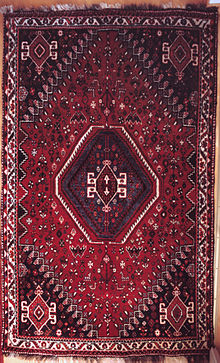 The verb “to orient” means “to align or position (something) relative to the points of a compass or other specified positions” But it also refers to finding “one’s position in relation to new and strange surroundings.”
The verb “to orient” means “to align or position (something) relative to the points of a compass or other specified positions” But it also refers to finding “one’s position in relation to new and strange surroundings.”
The derivation of the term Orient comes from the Latin word for east. While a 20th century definition would suggest Asia, or especially the eastern countries there such as China, Japan, and Korea, “the original East-West (or Orient-Occident) line in the Roman Empire was the Italian Peninsula’s East Coast.” As the definition moved eastward, the area in western Asia eventually became the Near East or Middle East, with China, et al becoming the Far East.
Probably the most famous train in the world is the Orient Express, the “name of a long-distance passenger train service created in 1883 by Compagnie Internationale des Wagons-Lits (CIWL)….Several routes in the past concurrently used the Orient Express name, or slight variants there of… The name has become synonymous with intrigue and luxury travel. The two city names most prominently associated with the Orient Express are Paris and Constantinople (Istanbul), the original endpoints of the timetabled service.”

The push back against the term Orient is that it is Eurocentric. Some believe the term “Oriental” suggested to them “passivity”, based on portrayals of people in media. A practitioner of Oriental medicine asks, “Is it racist?
When Oriental was official banned in New York State in 2009, Frank H. Wu, a law professor at Howard University, said, “The world ‘Oriental’ is not inherently negative. It’s associated with a time period when Asians had a subordinate status.” He said “the term was associated with exoticism and with old stereotypes of geisha girls and emasculated men… ‘Oriental’ is like the word ‘Negro.’ It conjures up an era.”
“By the strictest definition, Oriental rugs are carpets hand knotted only in Asia. Iran, China, India, Russia, Turkey, Pakistan, Tibet and Nepal are some of the biggest rug exporters. Persian rugs also are Oriental rugs but they are made only in Iran (formerly known as Persia).”

Hi Roger! Thank you for this most interesting post. In my language the word orientatian is very common: we use it almost daily.I had lived in an oriental country for 12 years.Beautiful rugs b.t.w.
Those orient carpets are beautiful.
Fascinating history lesson on the words “orient” and “oriental.” I think we tend to use the word(s) now as a location, not as a “race.” We use the word Asian more often than not to refer to people who are from the “Orient.”
Leslie
abcw team
Although I hardly use that word… I knew what it meant but your explanation is wonderful nevertheless. Those rugs are gorgeous, To bad the real ones are that expensive..
imagine beating those rugs the old fashioned way
When you mentioned Orient Express, immediately Agatha Christie came to mind:) The most awesome thing from Asia is for me how they elevated and produced silk.
Have a great week, Roger:)
I do love your take on the word Orient. I always learn something when I visit your blog.
Interesting post, Roger- I use the word orient to mean finding one’s place – and of course in wishing that I had the patience to make an Oriental rug, – they are so gorgeous, but the number of knots is beyond me at this stage of the game I fear.
Thanks for the good lesson, Roger. Lots of interesting things here that I never heard before.
Creative choice for O ~ love oriental rugs ~ thanks,
Wishing you a peaceful week ~ ^_^
Reminded me of a ‘Hercule Poirot’book by Agatha Christie – Murder on the Orient Express.
If you see the word “oriental” and a low-pitched gong goes off in the back of your mind, then perhaps you’re doing it wrong.
And, just because it bugs me, if you’re going to orientation they’re not going to “orientate” you; you’re going to be “oriented.”
Hi Roger,
I have already posted on your site but nothing yet has appeared, has anything changed re word press I wonder ?
I’ll try again and see what happens..
When I was at college we used to go Orienteering which was great fun.
I love the Asian rugs, we have a beautiful one that we purchase whilst
we were on one of our many trips to Turkey, it was hand woven in a factory
in Konya (Central Turkey) the spiritual home of the Dervishes.
Best wishes,
Di,
ABCW team.
I went through a period where I would simply want to spit and fight when I heard the word oriental. I wonder when I mellowed. lol
Fascinating post. I didn’t realise that this word was banned somewhere in the world. I’ve never thought about ‘oriental’ as something negative.
Oriental rugs were a good investment, unfortunately today the younger generation prefers modern carpets. I have visited factories in Turkey where the carpets or rugs are made ! what a work !
I’ve never thought about the connection between the two words before, interesting. Word association wise I suppose the word orient always conjurers up Dr Fu Manchu for me which probably makes the case as in films the part was never played by anyone of the right ethnicity.